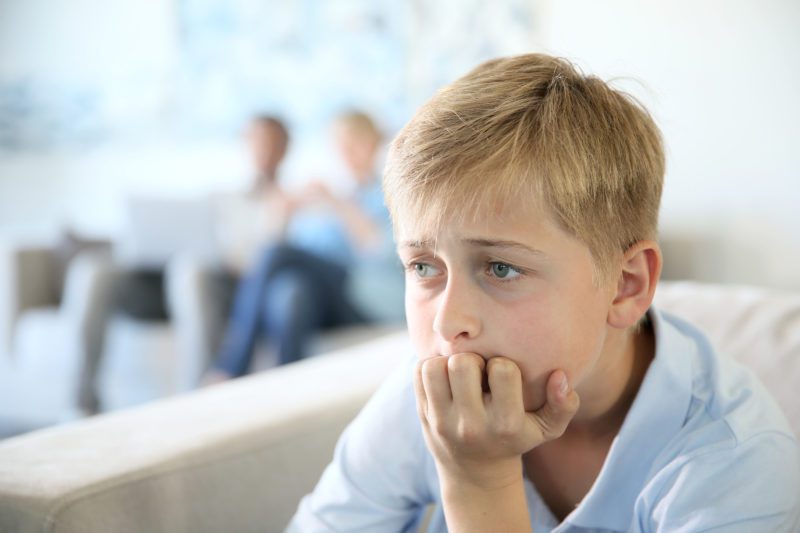Anxiety & Fear / Calming Children, Guest Posts
The one important thing all our kids should learn about

A guest post by Dr Kaylene Henderson
Many of us watch on as our children feel anxious at times, wishing we could magically make their anxiety disappear. Surely their lives would be easier, their days calmer and their moods happier if we could somehow keep this anxiety away?
Yet, we can’t.
Because the reality is, anxiety is a universal human experience.
That’s right, we ALL feel anxious sometimes.
In fact, we’d be in trouble if we didn’t.
Anxiety is a feeling that’s been cleverly hardwired into us to keep us safe. When we sense danger, our mind sharpens to focus solely on the situation before us and our body helpfully spurs into action. We start breathing more quickly so that we can take in more oxygen. Our heart beats faster so that it can deliver this oxygen to our muscles, readying us to flee or to engage in battle. Our incredible bodies work in this way to ensure our survival. And we wouldn’t want it any other way.
So if anxiety is so great, why is it considered a problem? Why do so many people struggle with it, including our kids?
There’s a helpful analogy that’s often used, that likens anxiety to a smoke alarm.
You see, when there’s a fire present, a smoke alarm sounds and we fly into action, ready to combat the blaze or to escape; But for many children, this alarm can become a little too sensitive. It can start to sound when it needn’t. When this happens, our kids will feel anxious in situations in which there’s nothing to fear.
Because they incorrectly sense danger, children may start to avoid activities that they should otherwise be enjoying – like class performances, sleepovers or school camps.
They can also spend a lot of time worrying, asking a seemingly never-ending stream of questions that begin with the words, ‘What if…’. And understandably, the sound of repeated false alarms can be both stressful and exhausting for our little ones.
Over time, a troubling shift occurs. Rather than feeling in control of their anxiety, our children can feel like their anxiety is in control of them. And let’s face it, it’s hard to feel confident or brave when you’re not in control.
The good news is, there is SO much we can do to help our children learn about anxiety and how to regain control of it.
But why stop there? Given that ALL of our children will feel anxious from time to time, shouldn’t we actually be educating all of our kids about anxiety – about what it is; why it’s helpful; and how to stay in charge of it?
Traditionally we’ve reserved this knowledge for the few who have sought professional help. While it’s important that we continue to do this, it makes sense to me that we extend this knowledge to all of our children, especially given the ever-increasing rates of problematic anxiety among our young people.
Naturally, it’s hard for our kids to feel in control of something that they’ve not been taught about. I imagine it’s also hard for you too, as a parent or educator, to teach your children about something you may never learned about either.
As a Child Psychiatrist, here’s where I suggest you start:
- Teach your child that anxiety is a normal, safe and often helpful feeling
- Normalise anxiety – tell stories of times that you’ve felt anxious and of how brave you’ve felt when you’ve faced your fears
- Books are a wonderful tool for teaching children about anxiety. They teach children that they’re not alone in their experience and can provide both practical guidance and reassurance in a non-threatening way. (Here are some great ones to get you started…)
- Teach your child that, just like the rest of their body, they’re in charge of their thoughts and that these thoughts, in turn, influence how they feel
As your child learns more about anxiety and how to manage it in situations they might’ve been otherwise tempted to avoid, they will steadily gain a sense of mastery and control.
And that’s when the magic happens. To truly make our children’s lives easier, their days calmer and their moods happier, we don’t need to make their anxiety disappear. We just need to help them master it.
Dr Kaylene Henderson is a medically trained Child and Adolescent Psychiatrist, trusted professional development provider for the early years sector and a leading parenting expert. She provides a host of resources for parents at her website adoseofawesomeness.com She joins colleagues Allison Davies and Maggie Dent onstage at Maggie’s Calming Today’s Anxious Kids conference. Keep an eye on our upcoming events to catch the next event`near you.
Image credit: ©️ goodluz /Adobe Stock – stock.adobe.com



